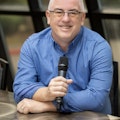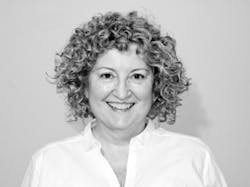Confronting and overcoming some of the challenges faced by female dental team members on a daily basis
I recently had the chance to chat with Dr. Patricia O'Gorman, a psychologist, speaker, consultant, coach, and author (pictured above). She just published a book, The Resilient Woman: Mastering the 7 Steps to Personal Power.
The Resilient Woman is about how women can consciously use their skills and resilience to grow and counter the pervasive societal forces known as "girly thoughts." With this in mind, I talked to Dr. O’Gorman about the challenges faced by female dental team members on a daily basis.
Kevin Henry: When we first talked about doing this interview, you told me you had a special place in your heart for female dental team members. Why is that?
Dr. O’Gorman: Every day in the work setting, female dental team members use their resilience to calm their patients’ anxiety. People are on edge when they visit the dental practice, and assistants and hygienists use considerable skills to calm them. Those same skills are available to women to use in their personal lives as well, but I often find women use their resiliency skills at work and not at home, and as a result they can feel overwhelmed. Their resiliency skills are so important for women to use in all areas of their lives.
Women develop resiliency skills when they’re faced with adversity. When the going gets tough, these skills are the ones women use to get them through. Think about the anxiety that goes on in the dental practice. Patients are anxious, and dentists are also anxious at times. The women in the practice have to pull deeply from their skills to keep calm and help things go smoothly. They even manage to make it look easy. That’s quite a skill.
Henry: While we never want to have a stressful day at work, you believe there is much to learn during a stress-filled time, correct?
Dr. O’Gorman: Yes. It’s amazing what we learn about ourselves during a crisis, for it’s usually a crisis that really shows us what resiliency skills we have. That’s why the first step I recommend for women who want to develop their resilience is to make whatever crises they are experiencing meaningful.
A positive function of a crisis is that it gets our attention and snaps us out of our everyday routine. That’s a good beginning point — to consciously understand what you’re doing that’s working. When you make a decision to develop conscious resilience, you give yourself the choice of not going into automatic pilot. You can use that crisis to look at the strengths you’re capable of using. I recommend that you take a step back and thoughtfully look at how you’re dealing with a crisis and what you’re doing that is working. It’s not easy to do this, because you’ll need to slow down for at least a nano-second. But once you make your resilience conscious, it’s a real game-changer for your entire life. You’re no longer at risk for running on “emotional empty.” You’re stepping into your personal power.
Henry: I often talk to dental assistants who tell me how hard it is to leave work at work. What is your response to that?
Dr. O’Gorman: It’s a struggle for most women. I had a moment of change when I was driving home one evening and realized I was mentally sorting the laundry, asking myself if I should begin with a dark or light load, and not thinking of the successes I’d had that day. We women tend not to give ourselves a break, so we arrive home exhausted and even resentful, and zoom through the night and head straight to bed. We get it mostly done, but we need to ask ourselves — at what cost to ourselves do we get it done?
I fully believe we women have to save some energy for ourselves. That may mean facing our “second shift” of family time by asking for help, or accepting that it won’t get done. This is just a fact of life, like when you’re flying and the announcement comes on that says, in case of an emergency, put your own mask on first and then help the others around you. That’s what this is all about. You have to be conscious that you’re taking care of yourself. If you aren’t, you’ll run on empty and become depressed, be tempted to fill up on things such as bad food or too much alcohol or excessive exercise to get you through. Remember, you’re the only person you’re going to spend your entire life with, so you’re worth your own best effort.
Henry: Finally, you talk in your book about the problem with “girly thoughts.” What do you mean by that?
Dr. O’Gorman: “Girly thoughts” are how women internalize society’s “should” messages, and then feel inadequate when they can’t be fulfilled. So many women think they should be taller or be a size 2. Or they berate themselves, saying they can’t succeed because they’re too smart or too aggressive, and therefore make people uncomfortable. As a result, they believe they deserve whatever misfortune comes their way. “Girly thoughts” are pervasive and not helpful. Because of these thoughts, power is drained from women. But women can learn to fight back by using the seven steps I recommend to build their resilience.
Dr. O’Gorman’s book, The Resilient Woman: Mastering the 7 Steps to Personal Power, is currently available on Amazon, and there is more information about her on her website at www.PatriciaOGorman.com.
About the Author

Kevin Henry
Cofounder, IgniteDA.net
With more than 20 years in the dental publishing industry, Kevin Henry is the former group editorial director for Dental Products Report and managing editor for Dental Economics. Currently, he is the editor-in-chief for DrBicuspid.com. He has spoken to dental assistants throughout the world, in person and through the Dental Assistant Nation podcast series, reminding them of the important role they play every day in their practice. He is also certified as a DiSC trainer, helping dental practices learn how to understand each other better through personality assessments and training.
